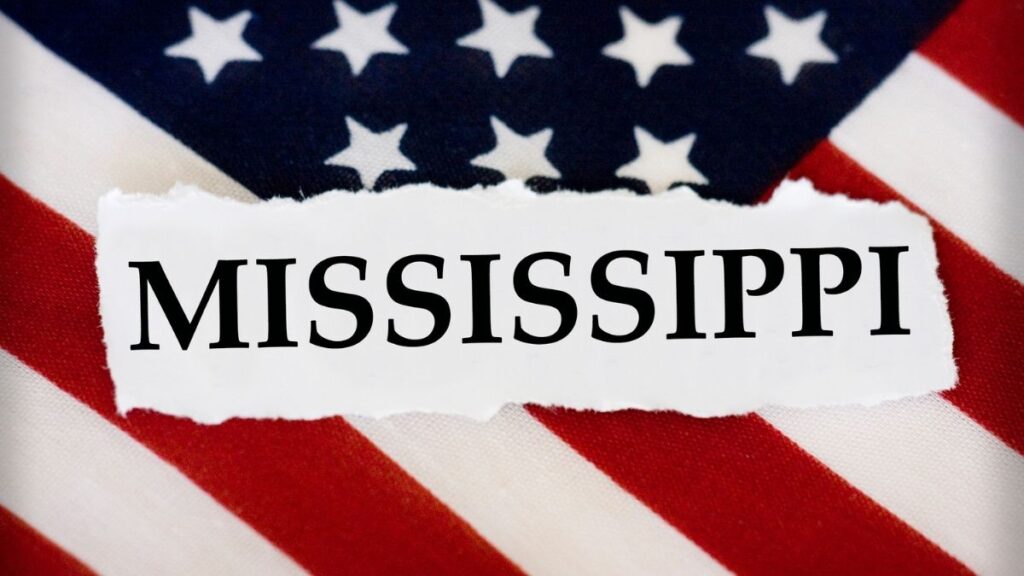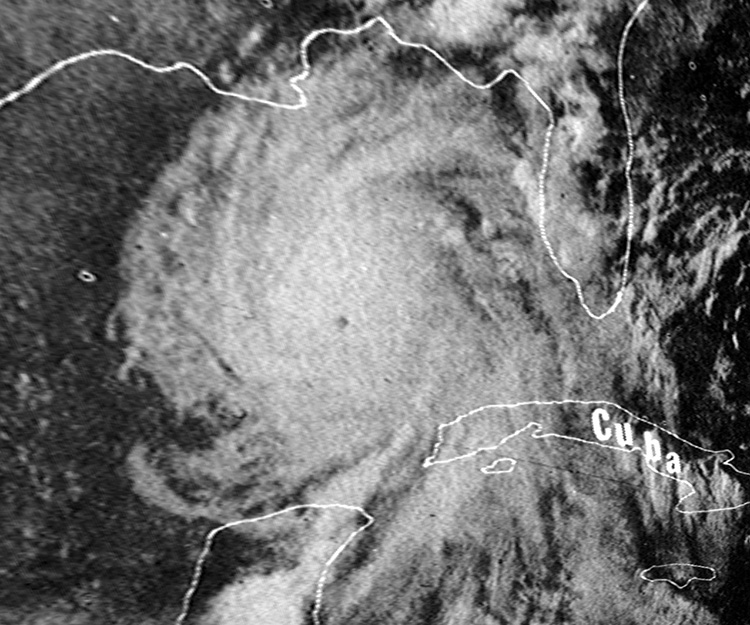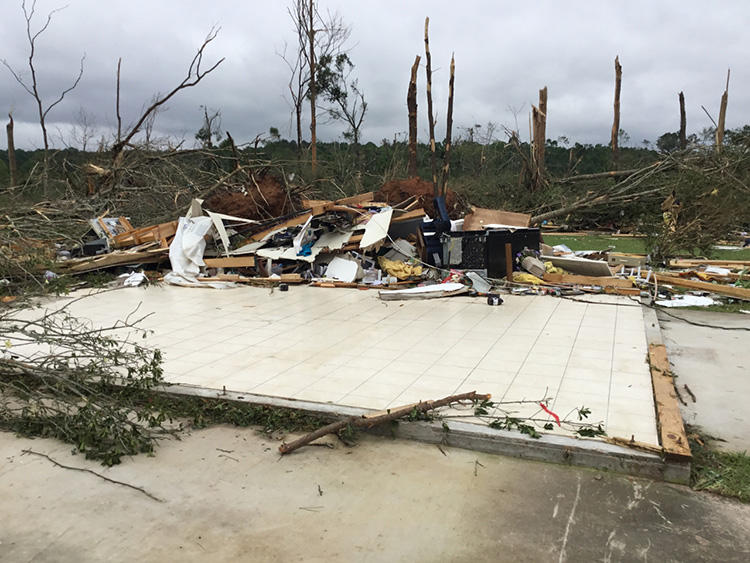
Mississippi preppers face many of the same threats as anyone else in America: civil collapse, EMP, natural disasters, etc. However, Mississippians have unique challenges than preppers in other states. What makes sense for a prepper in Georgia may not make sense for a prepper in California. This applies to Mississippi as well.
NOTE: Do you live in Mississippi? You know your state, so let us know in the comments section how this article can be improved. What did we miss? What did we get right?
Mississippi Overview – Prepper’s Perspective
The Magnolia state has a lot of farmland and swamps. The state has 44 miles of coastline and a majestic river. The Mississippi River is the second largest in the U.S. Despite being one of the most impoverished areas of the United States, it is also known as the “hospitality state” due to the legendary southern culture that is very welcoming. However, don’t let this deceive you; Mississippi suffers from a high crime rate thanks to that poverty and long-held racial divide among the residents.
Food
In Mississippi, agriculture is the top industry, directly or indirectly employing 17.4% of the state’s workforce. Mississippi’s agriculture industry brings in $8.83 billion to the state. With well over 34,700 farms that cover 10.4 million acres, it is safe to say that the fertile lands of Mississippi are easy to grow food in. Some of Mississippi’s top agricultural products are poultry and eggs, corn, soybeans, cattle, hay, rice, and wheat.
Water
Mississippi receives 57 inches of rainfall per year. Considering that the Mississippi River provides water to 23% of the nation’s surface water supplies, it is no wonder that the state has so many flooding and waterborne problems. However, it will surprise you to learn that Mississippi’s primary water source is from wells drawn from the Gordo Formation Aquifer, not the river itself. Either way, you won’t die of thirst in this state.
Mississippi Natural Disasters
Located in the tornado region called Dixie Alley, the state experiences 43 tornadoes annually on average. Additionally, Mississippi has an average of 81 days of severe storms. While the northern part of the state is not immune, it is slightly more insulated from damage. The southern part of the state receives more thunderstorms and tornados and bears the brunt of every hurricane landfall.
Other natural disasters in Mississippi are extreme heat and droughts, wildfires, landslides, winter storms, and even earthquakes. Since the Mississippi River floods, the state is prone to flooding as well. Flooding, combined with tornadoes and hurricanes, makes Mississippi more susceptible to natural disasters than many other states.
Historical Examples
1) Hurricane Camille (1969) – Camille resulted in 25’ of water in some parts of Mississippi. The total cost of damages was roughly $950 million. Being a Category 5 storm, it destroyed more than 3,800 businesses and homes. This hurricane would be the deadliest and most destructive in Mississippi history until Hurricane Katrina in 2005.

3) 1979 Easter Flood – Given the high water table and the ample water supply already available in the state, flooding is nearly guaranteed at some point. When twenty inches of rain fell on the state in 36 hours, a massive flood ensued. When the waters receded, damage was revealed that cost over $500 million to repair and clean up.
4) Hurricane Katrina (2005) – Most think of Louisiana when they recall Hurricane Katrina, but it also hit Mississippi hard. A total of 238 people were killed as a result, and 67 went missing. Another million were affected somehow. It was Mississippi’s deadliest natural disaster.
5) Easter Sunday Tornado Outbreak of 2020 – This was the broadest tornado in Mississippi history. Being two miles in diameter and traveling roughly 60 miles, this tornado outbreak left nothing but destruction in its wake. At least 140 tornadoes were registered during this event, killing 14 people and causing millions of dollars in damages.

Mississippi Prepping Strategies
Bugging In
Start a Homestead
People have been living in Mississippi long before modern amenities. The standard academic belief is that Mississippian culture goes back 10,000 years, but there is a growing number of people that are challenging that belief and contesting it goes back farther than that. Whatever the case, people have lived off the land in Mississippi for a long time. If SHTF and you decide to bug in, a history of survival is on your side. Start today with planting a garden, raising livestock, and keeping bees. When society is starving, you will eat well if you have started your homestead.
Cut Back Trees Near Your Home
Tornados and hurricanes are the two disasters that plague Mississippians. While you can’t escape them, you can reduce the debris that could be thrown at your house. If you are going to bug in, you will want to make sure your home makes it through. Removing any tree, bush, or structure that could be thrown or dropped on your home makes you much more likely to come out of the next storm unscathed.
Build a Storm Shelter
One of the best things you can do is build a hardened above-ground shelter that can withstand high winds and debris. Most of Mississippi has a very high water table, so building an inground shelter is likely to become flooded during times of intense rain. Therefore, above-ground is probably the best option for a storm shelter. Building out of cinderblocks, shipping containers, or other solid materials will help ensure that you are not destroyed during the next big storm but still have a place to retreat. See our downloadable shelter designs for ideas.
Bugging Out
One of the most important pieces of equipment for any prepper planning to bug out is to have decent maps of their state. Having an identified bug out location is crucial. All preppers in any state should begin their bug out plans with a paper map of their state. Nothing is better for all-purpose use than the DeLorme Atlas and Gazetteer.
- Delorme (Author)
- English (Publication Language)
- 64 Pages - 07/17/2018 (Publication Date) - Delorme (Publisher)
Waterways are Highways
If you are going to bug out in Mississippi, consider every creek, slough, and bayou a highway for getting somewhere. View waterways the way native Americans did, as trails and roads. A kayak, canoe, pirogue, or pack raft will get you much farther than nearly any other mode of transportation when SHTF. Multiple people have used the Mississippi River to traverse the entire North American continent, a tradition that stretches back centuries. Use Mississippi waterways as your ancestors did and travel freely.
Prepare for Insects
Unless you are bugging out in the dead of winter, bugs will plague you in this state. With the low elevation and standing water, Mississippi is one step away from being a full-on jungle. That means that bugs are a force to be reckoned with. Put bug repellant, a thermacell, and a face net in your bug out bag for each party member. If not, you will risk disease, discomfort, and heightened stress during an already stressful time.
Use a Trot Line
Once again, the water in Mississippi can be a beneficial asset if you leverage it correctly. As you bed down during your bug out, always do so next to a deep pool in a body of water. Cast a trot line into the pool with a fully baited hookset. When you wake up, you will almost likely be rewarded with some sort of fish for breakfast the next day. No matter what challenges you face during your bug out across the Magnolia State, hunger should never be one of them if you have a trot line handy.
Further Reading for Mississippi Preppers
This article just scratches the surface of what Mississippi preppers need to know. The following links could held educate you more on prepping in the state.
Mississippi Preppers – Very active Facebook group that organizes preppers in the state.
North Mississippi Preppers – Preppers that are focused on surviving in the northern parts of Mississippi.
Mississippi Emergency Management Agency – Civilian agency the government leverages to facilitate disaster training.
Sustainability Institute of Mississippi – Teaches courses on beekeeping, aquaponics, and other methods of being self-sufficient.
Mississippi Emergency Management – State response to disasters and training.

